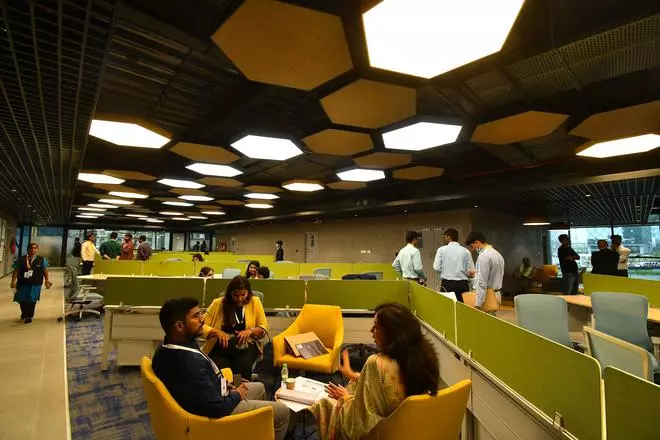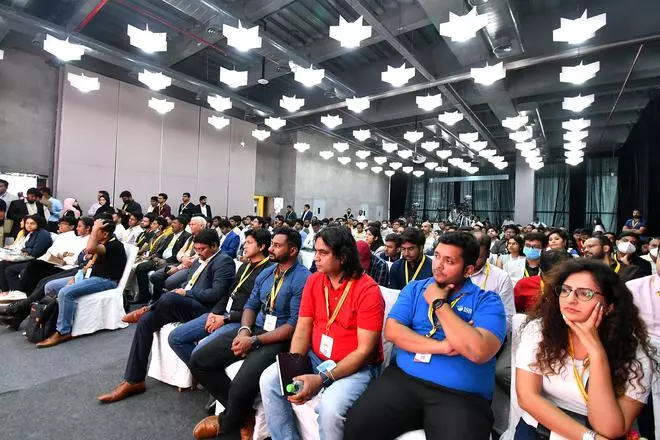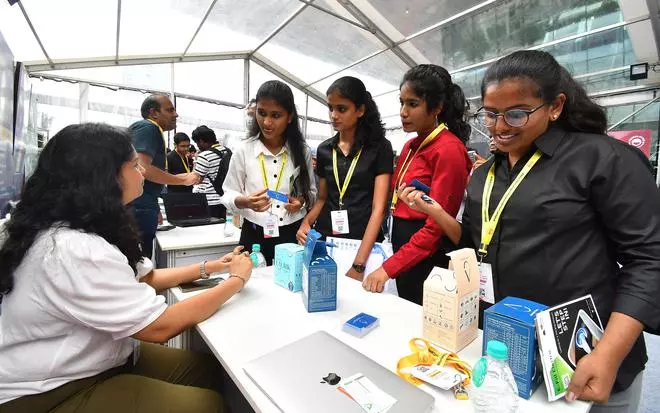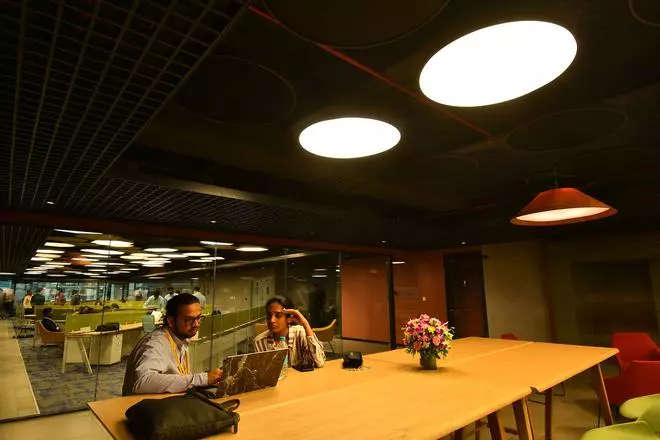T-Hub is a Hyderabad-based startup ecosystem enabler by facilitating collaborations between startups, venture capital firms, corporates, governments and academia.
Promoted by the Telangana Government, phase 1 of T-Hubstarted operations in 2015 at the temporary location situated at the International Institute of Information Technology (IIIT-H) at Gachibowli.
The IIIT-H, Indian School of Business and NALSAR University of Law also joined the Telangana government in building T-Hub.
Though promoted by the Telangana State government, Day-to-day operations are completely left to a professional team, which reports to a Board of Directors drawn from the ecosystem.
The basic objective of T-Hub is to encourage young entrepreneurs start-up and scale up their operations. They can come with a business idea to T-Hub, which will help them translate it into a product or service.
Insix years, T-Hub has helped about 2,000 startups build teams and help them with products and finding markets.
T-Hub soon caught the imagination of young entrepreneurs from not just Hyderabad but from all across India .
As it evolved, T-Hub began to focus on deep tech areas such as Blockchain, AI, Big Data, ML, IoT, and Mobility and brought in several industry partners to offer accelerators.
Seeing good traction for the idea, the Telangana Government decided for a much larger campus to provide space for all the ecosystem players.
T-Hub 2.0
View of the T-Hub 2.0, an incubation centre for IT startups, at Raidurgam in Hyderabad
| Photo Credit: RAMAKRISHNA G
The pandemichas delayed the T-Hub 2.0 project. Taken up with an investment of about ₹700 crore, T-Hub 2.0 looks to continue the legacy of phase 1 .
Located at Raidurg, T-Hub 2.0 has a neighbourhood that boasts of top global and domestic IT and semiconductor companies.
With a total built-up area of 5.82 lakh sq ft, T-Hub 2.0 is touted to be the world’s biggest innovation campus, beating Station F based in Paris.

Plush interiors of T-Hub 2.0 at Raidurgam in Hyderabad.
| Photo Credit: NAGARA GOPAL
“This will be a microcosm of the innovation ecosystem which will house more than 2,000 startups, corporates, investors, academia, and national and international ecosystem enablers,” M Srinivas Rao, Chief Executive Officer of T-Hub, said.
How to get enrolled

Delegates participating in events at the T-Hub’s second phase in Raidurg, Hyderabad. T-Hub 2.0 can accommodate 2,000 startups.
| Photo Credit: NAGARA GOPAL
T-Hub runs cohorts periodically in separate streams and calls for entries. Hosted both on-premises and in hybrid mode, these cohorts help startups, exposing them to the homegrown investment community.

Youngsters enquiring about new startups at T-Hub 2.0 in Raidurg, Hyderabad.
| Photo Credit: NAGARA GOPAL
Besides, it helps Indian startups find markets in countries like the US and help the startups abroad get access to Indian markets.
T-Hub also organises cohorts in associations with corporates.
Challenges

Interior view of T-Hub 2.0 at at Raidurgam in Hyderabad
| Photo Credit: NAGARA GOPAL
Though it is not official yet, T-Hub 2.0 is likely to cost ₹10,000 per seat (per month) for startup enthusiasts. This is higher than the ₹6-7,000 per seat that T-Hub used to chargeearlier
However, The question now is how startups will respond at a time when work-from-home is still in vogue. A large number of medium and large enterprises in the vicinity are still allowing 60-70 per cent of their employees to work from home. This is the same with several startups, that have vacated their office premises and allowed all of their employees to work remotely.
“It remains to be seen whether there will be enough takers,” an industry representative said.

T-Hub 2.0 can accomodate upto 2000 startups
| Photo Credit: NAGARA GOPAL
Published on
June 29, 2022
























